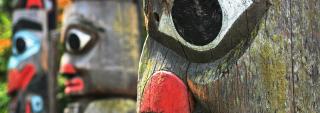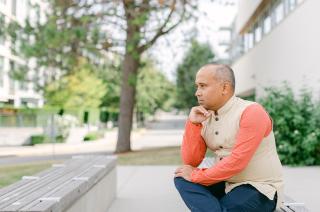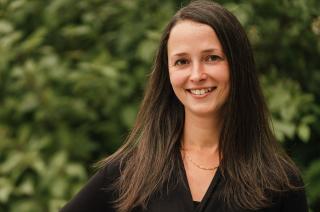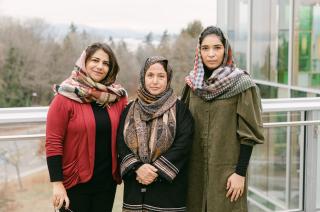As Indigenous communities in BC and throughout the country tackle complex governance issues across a range of areas, from health governance to land management, the expertise available at the University of British Columbia stands to contribute significantly. Yet facilitating the nexus between community-driven research questions and faculty involvement can be challenging. The Allard School of Law’s Professor Gordon Christie has been working with colleagues across the campus for the last two years to initiate discussion about institutional-level change that would enhance the University as a valuable and accessible resource for Indigenous community research.
On November 12 and 13, 2015, Professor Christie co-hosted a workshop at UBC with representatives of Indigenous communities from across British Columbia. The representatives came together to discuss issues related to conducting research projects with indigenous communities, and to identify common problems communities face when working with the University. The goal of the workshop was to produce a working document proposing concrete steps that should be taken to change institutional obstacles here at UBC.
“The ideal outcome would be to have UBC known among British Columbia’s Indigenous communities as the place to go to resolve governance issues,” Professor Christie explains.
Professor Christie points out that, in spite of significant and long-standing investment across the campus in both research and teaching initiatives related to Indigenous issues, many Indigenous communities in BC do not approach UBC for assistance on research projects. Sometimes it is the simple matter of going somewhere closer, but in many cases Indigenous communities find UBC a difficult place to navigate.
“It is perceived as a big monolithic institution, and it is hard to know what to do. Finding who to talk to, working out funding issues, figuring out just how the University functions – all this can be quite confusing.”
There are also challenges to tackle on the reverse side, when UBC researchers seek to work with Indigenous communities on projects. Professor Christie suggests that the University could do more to ensure that its researchers are better prepared for working respectfully with Indigenous groups, possibly with the creation of specific training programs. Professor Christie notes as well that divergent objectives on the part of university researchers and Indigenous communities can generate tension and misunderstanding.
“Peer-reviewed articles are generally what the University wants to see as the research outcome, but communities want to see something that helps them. In some ways, then, one can see there are two different parties, pursuing two different things. Both parties are pursuing the production of knowledge, but have different understandings of the outcome,” Professor Christie explains.
Better training around research work with Indigenous communities would help to inform UBC researchers of the unique ethical constraints involved in working with Indigenous communities on research projects and draw attention to what processes around ethical engagement entail.
Finally, the dissemination of university research, which is often focused on a single Indigenous community, can succumb to a siloing effect. As Professor Christie explains, “conclusions are reached concerning a particular community and some output is produced, but results are not easily accessible by other Indigenous communities in the province who might face similar issues. Thus other Indigenous communities have to essentially start afresh each time, instead of building on what has already been accomplished.”
The November workshop was a first planning session in what is envisioned as an ongoing cross-campus project to improve the interface between the University and Indigenous communities. The workshop provided an initial opportunity for Indigenous community and nation leaders to give University researchers and administrators a sense of just what the obstacles to better partnerships might be, and what – from the community perspective – might be done on the university side of the equation. Miriam Jorgensen of the Native Nations Institute – an institution affiliated with the University of Arizona which works on governance issues and other Indigenous matters – was also invited, to provide a sense from her experience of what is possible. Currently, the Allard School of Law, the Faculty of Forestry and the Centre for Excellence in Indigenous Health provide the three main focal points of discussion. A follow-up event is planned for May 2016.
For Professor Christie, the outcome of the process would be a win-win for both Indigenous communities and UBC. Indigenous communities would be assisted by policies and practices that would ensure easier access and understanding, but at the same time the University could increase the impact of its research in communities, enhancing its place as valuable public resource.
PROFESSOR GORDON CHRISTIE
Professor Christie has a LL.B. from the University of Victoria, and a Ph.D. in philosophy from the University of California, Santa Barbara. He has taught in universities in Canada and the United States, in Faculties of Law, and Departments of Philosophy and Indigenous Studies. Before joining the Allard School of Law he was an Assistant Professor at Osgoode Hall Law School (1998 - 2004), where he also acted as Director of the Intensive Program in Aboriginal Lands, Resources and Governments. He is Inuvialuit.



